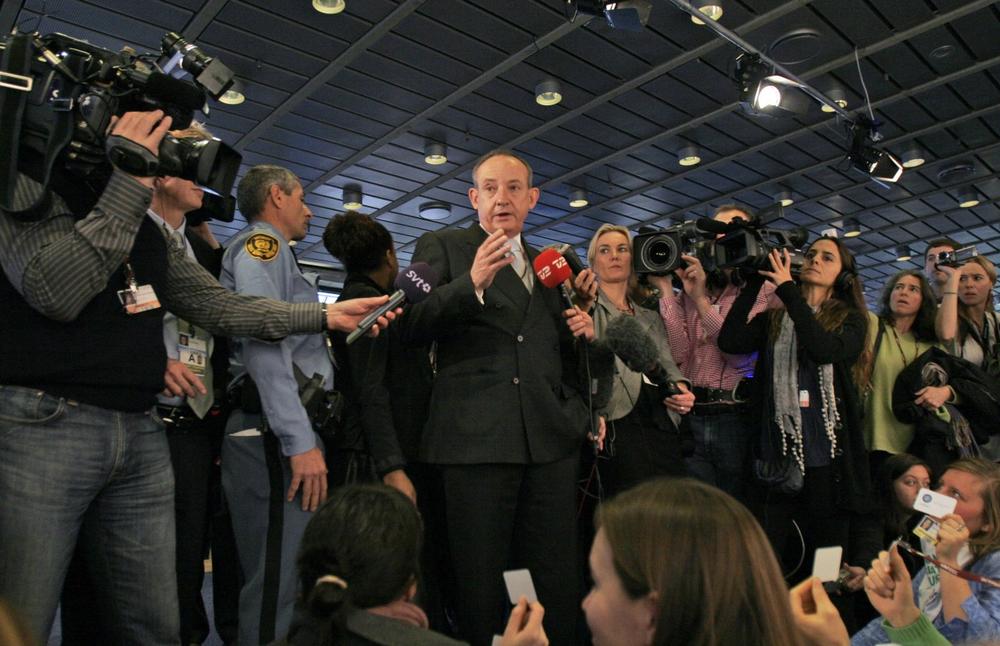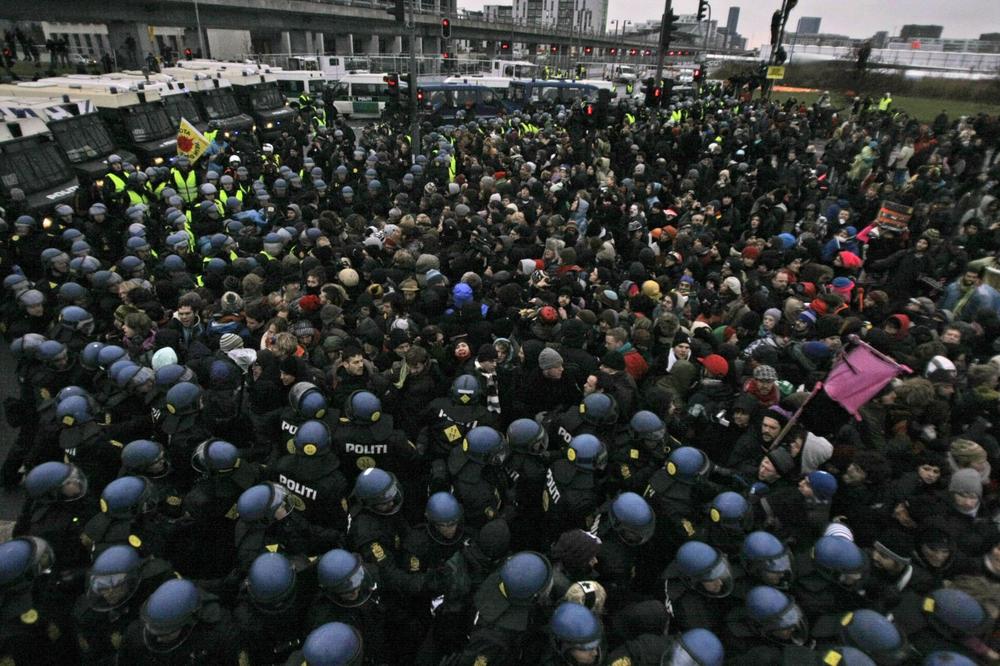Advertisement
Climate Talks Deadlocked As Clashes Erupt Outside

Danish police fired pepper spray and beat protesters with batons outside the U.N. climate conference on Wednesday, as disputes inside left major issues unresolved just two days before world leaders hope to sign a historic agreement to fight global warming.
With the talks so clearly deadlocked, Connie Hedegaard, former Danish climate minister, resigned from the conference presidency to allow her boss, Danish Prime Minister Lars Loekke Rasmussen to preside as world leaders from 115 nations streamed into Copenhagen. She was to continue overseeing the closed-door negotiations.
Hundreds of protesters were trying to disrupt the 193-nation conference, the latest action in days of demonstrations to demand "climate justice" - firm action to combat global warming. Police said 230 protesters were detained.
Inside the cavernous Bella Center convention hall, negotiators dealing with core issues debated until just before dawn without setting new goals for reducing greenhouse gas emissions or for financing poorer countries' efforts to cope with coming climate change, key elements of any deal.
"I regret to report we have been unable to reach agreement," John Ashe of Antigua, chairman of one negotiating group, reported to the full 193-nation conference later Wednesday morning.

In those overnight talks, the American delegation apparently objected to a proposed text it felt might bind the United States prematurely to reducing greenhouse gas emissions, before the U.S. Congress acts on the required legislation. U.S. envoys insisted, for example, on replacing the word "shall" with the conditional "should."
Hundreds of protesters marched on the suburban Bella Center, where lines of Danish riot police waited in protective cordons. Some demonstrators said they wanted to take over the global conference and turn it into a "people's assembly," and as they approached police lines they were hit with pepper spray.
Television pictures showed a man being pushed from the roof of a police van and struck with a baton by an officer.
After nine days of largely unproductive talks, the lower-level delegates were wrapping up the first phase of the two-week conference and handing off the disputes to environment ministers in a critical second phase.
The lack of progress disheartened many, including small island states threatened by the rising seas of global warming.
"We are extremely disappointed," Ian Fry of the tiny Pacific nation of Tuvalu declared on the conference floor. "I have the feeling of dread we are on the Titanic and sinking fast. It's time to launch the lifeboats."
Others were far from abandoning ship. "Obviously there are things we are concerned about, but that is what we have to discuss," Sergio Barbosa Serra, Brazil's climate ambassador, told The Associated Press. "I would like to think we can get a deal, a good and fair deal."
"A lot of things are in play," said a longtime observer, Fred Krupp of the U.S. Environmental Defense Fund. "This is the normal rhythm of international negotiations."
Governments had weeks ago given up hope of concluding a finished treaty at Copenhagen, as once envisioned, and aimed instead at establishing a framework, through decisions here, for negotiating more formal agreements next year.
This program aired on December 16, 2009. The audio for this program is not available.